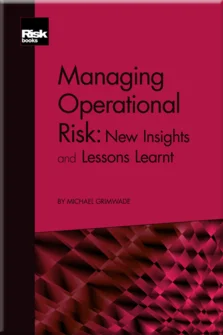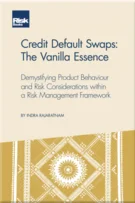Macroeconomic Threats: Tax, Rising Interest Rates and New Asset Bubbles
Introduction
Three Historical Spikes in Operational Risk Losses
First-Order Effects: Transforming Credit Defaults and Market Turmoil into Operational Risk Losses
Second-Order Effects: Transforming Rising Unemployment and Falling Interest Rates into Operational Risk Losses
Conclusions and Root Causes
Regulatory Change: Part of a Perfect Storm
Macroeconomic Threats: Tax, Rising Interest Rates and New Asset Bubbles
New Technology: Changing Business Models and Risk Profiles
Three Horsemen: Societal, Political and Environmental Change
Backtesting to the Mid-1990s and Conclusions
Defining and Cascading Operational Risk Appetites
Aligning Operational Risk Management Frameworks to Appetites
Estimating Exposures to Tail Events
Solutions for a Triumvirate of Seemingly Intractable Problems
Conclusions
“It’s a recession when your neighbour loses his job, and a depression when you lose your job.”
attributed to Harry S. Truman, 33rd US President
ECONOMIC SLOWDOWN
The developed world is not well placed to survive another financial crisis. The scope for fiscal stimulus is restricted by the significant increases in debt-to-GDP ratios, while, with interest rates in many economies ranging between near zero and negative, the only scope for further monetary stimulation seems to be increasingly negative rates and even more quantitative easing.
In its 2015 Annual Report to Congress the Office of Financial Research observed that the elevated corporate debt levels and sinking earnings were “hallmarks of the late stage of the credit cycle, which typically precedes a rise in default rates”. In line with this, 2015 had the second-highest level of defaults of companies with a global presence over the preceding decade and was exceeded only by 2009, at the height of the global financial crisis. The defaults of 2015 were largely driven by a combination of China’s slowdown and the impacts of low commodity prices, eg, the effects of oil prices on the US shale gas producers (“when China sneezes
Copyright Infopro Digital Limited. All rights reserved.
As outlined in our terms and conditions, https://www.infopro-digital.com/terms-and-conditions/subscriptions/ (point 2.4), printing is limited to a single copy.
If you would like to purchase additional rights please email info@risk.net
Copyright Infopro Digital Limited. All rights reserved.
You may share this content using our article tools. As outlined in our terms and conditions, https://www.infopro-digital.com/terms-and-conditions/subscriptions/ (clause 2.4), an Authorised User may only make one copy of the materials for their own personal use. You must also comply with the restrictions in clause 2.5.
If you would like to purchase additional rights please email info@risk.net










